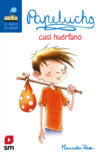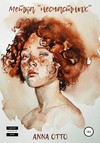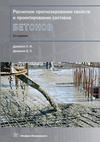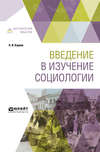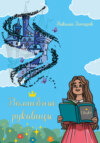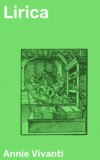Buch lesen: «The Outrage»
BOOK I
CHAPTER I
Chérie was ready first. She flung her striped bath-robe over her shoulders and picked up Amour who was wriggling and barking at her pink heels.
"Au revoir dans l'eau," she said to little Mireille and to the German nursery governess, Frieda.
"Oh, Frieda, vite, vite, dégrafez-moi," cried Mireille, backing towards the hard-faced young woman and indicating a jumble of knotted tapes hanging down behind her.
"Speak English, please, both. This is our English day," said Frieda, standing in her petticoat-bodice in front of the mirror and removing what the girls called her "Wurst" from the top of her head. In the glass she caught sight of Chérie making for the door and called her back sharply. "Mademoiselle Chérie, you go not in the street without your stockings and your hat."
"Nonsense, Frieda! In Westende every one goes to bathe like this," and Chérie waved a bare shapely limb and flicked her pink toes at Amour, who barked wildly at them.
"I do not care how every one goes. You go not," said Frieda Rothenstein, hanging her sleek brown Wurst carefully on the mirror-stand.
"Then what have we come here for?" sulked Chérie, dropping Amour and giving him a soft kick with her bare foot.
"We have come here," quoth Frieda, "not for marching our undressed legs about the streets, but for the enjoyment both of the summer-freshness and of the out-view." Whereupon Mireille gave a sudden shriek of laughter and Amour bounded round her and barked.
Chérie crossed the room to the chair on which her walking clothes had been hastily flung. "Won't sand-shoes do?"
"No. Sand-shoes and stockings," said Frieda. "And hat," she added, glancing down at the comely bent head with its cascade of waving red-brown locks.
Chérie hurriedly drew on her black stockings, glancing up occasionally to smile at Mireille; and nothing could be sweeter than those shining eyes seen through the veil of falling hair. Now she was ready, her flapping bergère hat crushed down on her careless curls, Amour hoisted under her arm again, and with a nod of commiseration to Mireille she ran down the narrow wooden staircase of Villa Esther, Madame Guillaume's appartements meublés and was down in the rue des Moulins with her smiling face to the sea.
The street was a short one, half of it not yet built over, leading from a new aeroplane-shed at the back to the wide asphalted promenade on the sea-front. Chérie met some other bathers—a couple of men striding along in their bathing suits, their bronzed limbs bare, a damp towel round their necks, their wet hair plastered to their cheeks. They barely glanced at the picturesque little figure in the brief red bathing-skirt and flapping hat, for all along the sands—from Nieuport, twenty minutes to the right, to Ostend half an hour to the left—there were hundreds of just such charming school-girl figures darting about in the sunlight, while all the fast and loose "daughters of joy" from Brussels, Namur, and Spa, added their more poignant note of provocativeness to the blue and gold beauty of the summer scene.
Chérie passed the bicycle shop and waved a friendly hand to Cyrille Wibon, who was kneeling before his racing Petrolette and washing its shining nose with the tenderness of a nurse and the pride of a father.
"Remember! the two bicycles at eleven, on the sands," cried Chérie in Flemish, and Cyrille lifted a quick forefinger to his black hair, and nodded. Chérie ran on, crossed the wide promenade, and skipped down the shallow flight of steps leading to the sands, those vast sweeping sands of Westende that begin and end in the wide, wild dunes. She dropped Amour, who rolled over, righted himself, dug a few rapid holes with his hind paws in the sand and then trotted off to lead his own wicked dog's life with certain hated enemies of his—a supercilious leveret, a scatter-brained Irish terrier, and a certain mean and shivering black-and-tan, whose tastes and history would not bear investigation.
Chérie plunged through the quarter of a mile of dry, soft sand, into which her feet sank at every step, and as she reached the smoother surface that the outgoing tide left hard and level, she flung off her bath-robe and her hat, her sand-shoes and her stockings; then she ran out into the water.
Lithe and light she ran, skipping over the first shallow waves and on until the water lapped her knees and the red skirt bulged out all round her like a balloon—on she ran with little chilly gasps of delight, raising her white arms above her head as the water rose and encircled her with its cool, strong embrace. The sun cast a net of dancing diamonds on the blue satin sea, and the girl felt the joy of life bound within her like some wild, living thing. She joined her finger-tips and dived into the dancing waters; then she emerged, pushing her wet hair from her eyes with her wet hand. She swam on and on toward the azure horizon, and dreamed of thus swimming on for ever and losing herself in the blue beauty of the world.
An aeroplane passed above her with its angry whirr returning from Blankenberghe to Nieuport, and she turned on her back and floated, looking up at it and waving her small gleaming hand. She thought the plane dipped suddenly as if it would fall upon her, and she watched it, holding her breath for the pilot's safety till it was almost out of sight. Then she turned and trod water awhile and blinked at the distant shore for a sight of Mireille.
Yes, surely, there was the skimpy figure of Frieda, and beside it ran and hopped the still skimpier figure of Mireille, whose thin legs had only scampered through ten Aprils and whose treble voice cut the distance with the shrill note of exceeding youth.
"Chéreee!… Chéreeee!… Come back. Come back and fetch me!"
So Chérie, with a sigh, turned and swam slowly landward.
Mireille came running out to meet her with little splashes and jumps and shrieks, while Frieda stopped behind in a few inches of water and went through a series of hygienic rites, first wetting her forehead, then her chest, then her forehead again, and finally sitting down solemnly in the water until she had counted a hundred. This concluded her bath, and she went home to dress.
When, an hour later, she came down to the sands again neatly clothed in her Reformkleid, with the Wurst reinstated high and dry on the top of her otherwise damp head, she saw her two charges lying flat and motionless in the sand, the broiling sunshine burning down on their upturned faces and closed eyes. They were pretending to be dead; and indeed, thought Frieda, as she saw them lying, so small and still on the immensity of the sands, they looked like drowned morsels of humanity tossed up by the sea.
Before Frieda could reach them, Cyrille, the bicycle teacher, passed her—the monkey-man, as the girls called him—pedalling along on one machine and guiding the other towards the two small recumbent figures. They jumped up when they heard him, and by the time Frieda reached the spot, Mireille was being hoisted on to a very rusty old machine, while Chérie, a slim, scarlet figure, with auburn locks afloat and white limbs gleaming, was skimming along in the distance on the smooth resilient sands.
"I do not approve," panted Frieda, running alongside of the swaying Mireille, while the monkey-man trotted behind and held the saddle,—"I do not approve of this bicycle-riding in bathing costume."
"Oh, Frieda," gasped Mireille, "do stop scolding, you make me wobble—" and with a sudden swerve the bicycle described a semicircle and ran swiftly down into the sea.
Mireille was very angry with Frieda and with the bicycle and with the monkey-man, who grinned with his very white teeth in his very dark face, and hoisted her up again. Frieda soon tired of following them, and sat down near an empty boat to read Der Trompeter von Säkkingen.
Säkkingen! As Frieda's eyes skimmed the neatly printed pages and lingered on the woodcut of a church tower and a bridge, her soul went back to the little town on the Rhine. For Frieda, like the famous trumpeter, came from Säkkingen; her feet, in square German shoes, had tottered and run and clattered and tripped at divers ages over its famous covered bridge; she had leaned out of the small flower-filled windows, and sent her girlish dreams floating down the sleepy waters of the Rhine; she had passed Victor von Sheffel's small squat monument every morning on her way to school, and every evening on her way home she had looked up at the shuttered windows of the house that had been his. Säkkingen!—with its clean white streets and its blue-and-white Kaffee-Halle in the Square and its bakeries redolent of fresh Kuchen and Schnecken.... Frieda raised eyes of rancour to the dancing North Sea, to the smooth Belgian sands, to the distant silhouettes of Chérie, Mireille, and the monkey-man, even to the bounding Amour and his companions of iniquity. She hated it all. She hated them all. They were all selfish and vulgar and flippant, with no poetry in their souls, and no religion, and bad cooking.... Frieda shook her head bitterly: "Das Land das meine Sprache spricht …" she murmured in nostalgic tones, and sighed. Then she took up her book again and read what Hidigeigei, tom-cat and philosopher, had to say about love and the Springtime.
Warum küssen sich die Menschen?
Warum meistens nur die Jungen?
Warum diese meist im Frühjahr?…
That evening Mireille opened the door to the postman and took two letters from him. Then she went to the sitting-room where Frieda and Chérie sat at their needlework; hiding one of the letters behind her back she read out the superscription of the other with irritating slowness:
"Mademoiselle—Chérie—Brandès—Villa—Esther—"
"Oh, give it to me!" cried Chérie, extending an impatient hand.
"It is from Loulou," said Mireille, giving up the letter and still holding the other one behind her back.
"You may not call your mother Loulou," snapped Frieda. "I have never heard of such a thing."
"She likes it," said Mireille. "Besides, Chérie calls her Loulou."
"Chérie is her sister-in-law, not her daughter," said Frieda; then catching sight of the other letter in Mireille's hand: "Who is that for?"
"Hochwohlgeborenes Fräulein—Frieda Rothenstein—" read Mireille, and Frieda rose quickly and pulled the letter out of her hand. "Oh, Frieda, you rude thing! Who is your letter from? It's on our letter-paper, and is not from Loulou, and it is not from my father. Who calls you all that twiddly-twaddly hochwohlgeboren nonsense?"
Nobody answered. Both Fräulein and Chérie were reading their letters with intent eyes. Mireille continued her monologue. "I believe it is from Fritz. Fancy! Fritz, who is only papa's servant, writing to you! Do you answer him? Fancy a hochwohlgeboren getting letters from a man-servant!"
Frieda did not deign to reply, nor did she raise her eyes from the letter in her hand; yet as Mireille could see, it was only one line long. Just four or five words. But Frieda sat staring at them as if they had turned her to stone.
Now Chérie had finished reading the hastily scrawled page in her hand and raised a face full of consternation.
"Frieda! Mireille! Do you know what has happened? We are to go home tomorrow."
"Tomorrow!" exclaimed Mireille. "Why, papa said we were to stay here two months, and we only arrived four days ago."
"Well, your mother writes that we are to go home at once. Do you hear, Frieda?" But Frieda did not answer nor raise her eyes.
"But why—why?" cried Mireille. "Doesn't Loulou know we have arranged to have your birthday party here, with Lucile and Jeannette and Cri-cri all coming on purpose?"
"Yes, she knows," said Chérie, turning her sweet, perplexed eyes from Mireille's disconcerted face to the impassive countenance of Frieda, "but she says there is going to be war."
"War? What has that got to do with us?" exclaimed Mireille in injured tones. "It really is too bad. Just as I had made up my mind that tomorrow I would swim with both feet off the ground!…"
CHAPTER II
The next day's sun rose hot and angry. It was the 30th of July. By ten o'clock Frieda had packed everything. Amour had been put into his picnic-basket and his humped-up back coaxed and patted and finally forcibly pressed down, and the lid shut over him. Then they awaited the carriage ordered by telephone from Ostend the night before.
But no carriage arrived. At eleven Chérie ran across to the telephone-office and spoke in her sternest tones to the livery stable in Ostend.
"Eh bien? Is this carriage coming? We ordered it for ten o'clock."
"No, Madame, it is not coming," replied a gruff voice from the other end.
"Not coming?"
"No, Madame." Then in lower, almost confidential tones, "It has been requisitioned."
"What is that? Then send another one," said Chérie. But Ostend had cut off the communication and Chérie returned crestfallen and wondering to the glum Frieda and the doleful Mireille sitting on the trunks in Madame Guillaume's narrow hall.
"No carriage," she said.
"What?" exclaimed Frieda.
"Why not?" asked Mireille.
"I don't know; something is being done to it," Chérie said vaguely. "I did not understand. Perhaps it is being re—re—covered, or something."
At noon Madame Guillaume found a porter for them who wheeled the luggage on a hand-cart to the Westende tramway station. And the tramway carried them and their luggage and Amour in his basket to Ostend, where another man with a hand-cart was found to wheel the luggage and the basket to the railway station.
They noticed at once that Ostend wore a strange and novel air. Crowds filled the town, crowds that were not the customary sauntering demi-mondaines and lounging viveurs. No; the streets were full of hurrying people, of soldiers on foot and on horseback; long lines of motor-cars, motor-cycles, carts and wagons blocked the roadways, and behind them came peasants leading strings of unharnessed horses. Down the rue Albert came, marching rapidly, a little band of Gardes Civiques in their long coats and incongruous bowler-hats with straps under their chins. Groups of officers, who had arrived a few days before for the international tennis tournament, were assembled on the Avenue Leopold and talked together in low, eager tones.
"What is the matter with everybody?" asked Mireille, as they hurried through the Place St. Joseph and across the bridge after the man with the luggage, who was already vanishing into the crowded station.
As if in answer to her question a couple of newspaper boys came rushing past with shrill cries. "Supplément … supplément de 'l'Indépendance' …, Mobilization Générale...."
"Frieda, is there really going to be war?" asked Chérie, looking anxiously at Frieda's sulky profile.
"Yes, I believe so," said Frieda. "Between Russia and Germany."
"Oh well; that is far away," said young Chérie, with a little laugh of relief, and she ran to rescue the picnic-basket from the porter's roughly swinging hand.
"Amour is whining," whispered Mireille, as they stood in the crush waiting to pass the ticket-collector on the quai.
"Oh! he mustn't," said Chérie. "Officially he is sandwiches."
So Mireille thumped the basket with her small gloved hand and murmured, "Couche-toi, tais-toi, vilian scélérat." And the official sandwiches subsided in the basket and were silent.
They never had such a journey. The train was crowded to suffocation; the whole world seemed to be going to Brussels; every few minutes their train stopped to let other even more crowded trains dash past them towards the capital.
"I have never seen so many soldiers," said Mireille. "I did not think there were so many in the world."
Frieda Rothenstein smiled disdainfully with the corners of her mouth turned down. "There are a few more than this in my country," she said.
"What? In Germany? But not such beautiful ones," cried Mireille, hanging out of the window and waving her handkerchief as many others did to a little company of Lancers cantering past on the winding road with lances fixed and pennants fluttering.
Frieda glanced at them superciliously. "You should see our Uhlans," she said. And added under her breath, "Who knows? Perhaps one day you may."
But the girls were not listening. The train was running into Brussels at last. The journey had taken five hours instead of two.
An hour later they still sat in the motionless train in the Brussels station.
"At this rate we shall never reach Bomal," said Chérie drearily, as they watched train after train packed with soldiers leave the station before theirs in the direction of Liège. Here all the world seemed to be rushing out of Brussels towards the eastern frontier.
But all things end; and finally their train started too, panting and puffing out of the Gare du Nord towards Louvain, Tirlemont, and Liège.
It was utterly dark by the time they reached Liège; and when they left the Gare Guillemin the soft summer night had swathed the valley of the Ourthe with tenebrous draperies. Little Mireille fell asleep with a pale smudgy face resting against Frieda's arm. Chérie lay back in her corner dozing and dreaming of Westende's blue sea; but Frieda's eyes were wide open staring out into the darkness as the train rumbled in and out of the tunnels, clattered over bridges following the gleaming blackness of the river.
Where the Ourthe meets its younger brother the Aisne, the train slowed down, trembled, hissed, and stopped.
"Bomal," announced the guard.
"Here we are! Mireille, wake up!" cried Chérie, looking out of the window. Then she put Mireille's bergère hat very crookedly on the child's towzled head, while Frieda hurriedly collected the books, the tennis-rackets and the parasols.
"Ah! there he is," and Chérie waved her hand out of the window to a tall figure on the platform. "Claude! Claude! Nous voici."
Claude Brandès, a handsome man, fifteen years older than his sister Chérie, opened the carriage door with an exclamation of relief. "Thank goodness you are here," he said, lifting his dazed, weary little daughter in his arms as if she were a baby and hoisting her on to his shoulder. "Are you all right? Have you got everything? Come along!" And he started down the platform, Chérie and Frieda trotting quickly after him. "Mademoiselle," he said, turning to Frieda, "give the check for your trunks to Fritz."
"Oui, Monsieur le Docteur," she replied, fumbling for it in her hand-bag. Then she looked round for the man-servant, whom she had as yet not caught sight of. Fritz Hollander ("Hollander by name and Hollander by nationality," he always said of himself when making new acquaintances) stepped out of the shadow and took the paper from Frieda's hand. She murmured a greeting to him, but he did not reply nor did he seem to notice her questioning glance. He turned on his heel, and his massive figure was soon swallowed up in the shadows at the end of the station.
The little party had just reached the exit and the train, with a parting whistle, was curving away into the darkness, when Mireille suddenly raised her face from her father's shoulder and gave a shriek. "Amour! We have forgotten Amour!"
It was true. Amour, cramped and disgusted in his creaky luncheon basket, was travelling away in the darkness to the heart of the Ardennes.
After the first moment of dismay everybody was cross with everybody else.
"It's all his own fault," said Chérie, who was tired and hungry. "He might have barked. He knew perfectly well that we were getting out."
"Haven't we taught him to pretend he is sandwiches when we're travelling?" sobbed Mireille indignantly. "How can you be so unjust?"
"Never mind, Mirette," said her father; "don't cry. We will telegraph to Marché to have him stopped and sent back. You will see him turn up safe and tail-wagging in the morning."
And the telegram was sent.
As they walked through the silent, sleeping village of Bomal Chérie inquired, "Why is Loulou not here? She might have come in the motor."
Her brother hesitated a moment. "I have sent away the car," he said.
"Sent it away? What for?" exclaimed Chérie.
"I have … I have lent it," said Dr. Brandès.
"To whom?" inquired Mireille, trotting beside her father and hanging on to his arm.
He gave a little laugh. "To the King," he said.
"Oh!" cried Mireille. "Not much of a car to lend to a king! Surely he has better ones himself."
"We all give what we have in time of war," said her father. "Come, I will carry you, my little bird," he said, and lifted her up again.
"What is the matter? Why are you so affectionate?" asked Mireille, nestling comfortably in his arms and patting his broad back with her small hand.
Chérie laughed and looked up adoringly at her big brother. "Is he not always affectionate?" she asked.
"Not so dreadfully," replied Mireille, in her matter-of-fact tones; and then they all three laughed.
Frieda, hurrying behind them in the dark with the books, the parasols, and the tennis-rackets, hated them for their laughter.
Louise Brandès, a slim white figure in the moonlight, awaited them at the door. She kissed Mireille and Chérie and greeted Frieda kindly; then she made them all drink hot milk and sent them to bed.
"But I want to tell papa about how I can almost swim and nearly ride a bicycle," said Mireille, sidling up to her father.
"You shall tell him tomorrow, my darling," said Louise.
But the morrow was not as they dreamed it.
When early next morning Frieda and the girls came down to the breakfast-room they found Louise, still in her white dress of the evening before, sitting on the sofa with red eyes and a pale face. In answer to their anxious questioning she told them that Claude had been called away. Two officers had come for him close upon midnight; he had scarcely had time to pack a few things. He had taken his surgical outfit; then they had hurried him away with short words and anxious faces.
"But where—where has he gone to?" asked Chérie.
"I don't know," said her sister-in-law, and the tears gathered in her dark eyes. "They said something about his being sent to a field ambulance, or to … to the Dépôt Central...."
"What is that?" asked Mireille; but as nobody knew, nobody answered.
Mariette the maid brought in the breakfast, followed by her mother, Marie the cook; and they both had red eyes and were weeping. Marie said that her two sons had come to the house at dawn to bid her and Mariette good-bye; the eldest, Toinot, belonged to the 9th line regiment and had been sent off to Stavelot; and Charles, the youngest, had volunteered and was being sent off heaven knows where.
"Of course there is nothing to cry about," added Marie, with large round tears rolling down her ruddy face. "There is no danger for our country. But still—to see one's boys—going away like that—s-s-singing the B-b-brabançonne—" she broke into sobs.
"Of course, my good Marie," echoed Louise, "there is nothing to cry about...."
And then they all wept bitterly. Even Frieda, with her face in her handkerchief, sobbed—on general principles, and also because Weltschmerz gnawed at her treacherous, sentimental German heart.
At breakfast every one felt a little better. As nearly all the men had left Bomal or were about to leave, it was a comfort to reflect that Fritz Hollander, the doctor's confidential servant, being a Dutchman, was not obliged to go. True, he was a somewhat sulky, taciturn person, but he had been with them two years and, as Loulou remarked while she poured out the coffee, one felt that one could trust him.
"I always trust people who are silent and look straight at you when you speak," said the wise Louise, who was twenty-eight years old, and admired Georges Ohnet.
"I don't like Fritz," remarked Mireille. "I hate the shape of his head—and especially his ears," she added.
"Don't be silly," said Chérie.
Frieda, who was just dipping a fresh roll into her coffee, looked up. "He has the ears God gave him," she remarked, with pinched and somewhat tremulous lips.
Every one looked at her wonderingly, and she flushed scarlet as she bent her head and dipped her roll into her cup again.
After breakfast Louise went to rest for a few hours; Frieda said she had some letters to write, and the two girls went out to call on their friends and make plans as to what they would do on Chérie's birthday, the 4th of August.
They went to Madame Doré's house in the Place du Marché and found their friends Cécile and Jeannette busy with their boy-scout brother, André; they were sewing a band with S.M. on it, on the right sleeve of his green shirt.
"What is S.M.?" inquired Mireille.
"That means Service Militaire," replied André proudly.
"Fancy!" exclaimed Mireille. "And you only fifteen!"
André passed his left hand carelessly over his fair hair. "Oh yes," he said, with very superior nonchalance. "There are four thousand of us. We shall have to take care of you women," he glanced with raised eyebrows at the small, admiring Mireille, "now that the other men have gone."
"Keep your arm quiet," said Cécile, "or I shall prick you."
"Where is your father?" asked Chérie. "Has he left, too?"
"Yes," said André. "He has been called out for duty in the Garde Civique. He is stationed on the Chaussée de Louvain, not far from Brussels."
"Isn't it all exciting?" cried Jeannette, jumping up and down.
"But against whom are we going to fight?" asked Mireille.
"We don't know yet," declared André. "Perhaps against the French; perhaps against the Germans."
"Perhaps against nobody," said Cécile, biting off the thread and patting the neatly-sewn armlet on her brother's sleeve.
"Perhaps against nobody," echoed André, with a boyish touch of ruefulness. "Nobody will dare to invade our land."
"Come, let us go into the garden," said Jeannette.
Thus it was in Belgium on the eve of her impending doom. Doubtless in high places—in the Palais de la Nation and the Place Royale—there were hearts filled with racking anxiety and feverish excitement; but throughout the country there was merely a sense of resolute expectancy, of not altogether unpleasant excitement. Every one knew that the sacrosanct rights of the land would be respected, but it was just as good, they said, to be ready for every event.
Nobody on that summer evening, from the remotest corner of Belgian Luxembourg to the farthest homestead in Flanders, as they watched that last July sun go down over the peaceful fields of grain, dreamed that the Grey Wolves of War were already snarling at the gates, straining to be let loose and overrun the world, panting to get to their work of slaughter and destruction. No one dreamed that four days later massacre and outrage and frenzied ferocity would rage through the shuddering valleys of the Ardennes.
Thus while Chérie and Cécile, Jeannette and Mireille ran out into their sunshiny garden, at that same hour, far away in the Wilhelmstrasse a man with a grey beard stood on a balcony and spoke to a surging crowd—promising blood to the wolves.
Thus while the four fair girls planned what they would do on the 4th of August, on that balcony in Berlin their fate and the fate of Europe was being pronounced.
"We shall invite Lucile, Cri-cri, and Verveine," said Chérie.
"We shall dash those aside who stand in our way," said the man on the balcony.
"We shall dance," said Mireille.
"We shall grind our heel upon their necks," said von Bethmann-Hollweg.
And the Grey Wolves roared.



